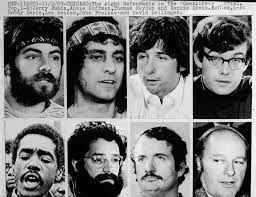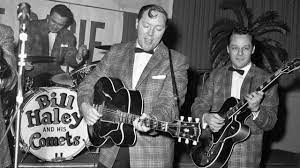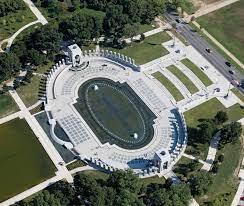On October 9, 1969, the United States was embroiled in a highly publicized trial known as the Chicago Eight. This trial captured the nation's attention and became a symbol of the political and social unrest of the era.
The Chicago Eight, originally known as the Chicago Seven, were a group of anti-Vietnam War activists who were charged with conspiracy and incitement to riot during the 1968 Democratic National Convention in Chicago. The defendants included prominent figures such as Abbie Hoffman, Jerry Rubin, Tom Hayden, and Bobby Seale.
The trial was marked by intense political and cultural divisions. The defendants, who were part of various countercultural and anti-war movements, saw themselves as activists fighting against an unjust war and social injustice. The government, on the other hand, viewed them as agitators and threats to public order.
The trial itself was highly contentious. The defendants, known for their provocative and confrontational tactics, sought to use the courtroom as a platform to voice their dissent and expose what they saw as the government's wrongdoing. The proceedings were filled with heated exchanges between the defendants and the judge, Julius Hoffman, who was known for his often hostile treatment of the defendants and their attorneys.
One of the most notable moments of the trial occurred when Bobby Seale, a Black Panther Party member, was bound and gagged in the courtroom after repeatedly clashing with Judge Hoffman. This incident drew widespread condemnation and highlighted the racial tensions and systemic injustices that were prevalent at the time.
The trial of the Chicago Eight was about more than just the specific charges against the defendants. It became a symbol of the larger struggle between the establishment and the counterculture movement. It represented the clash between the conservative values of the government and the desire for change and social justice that was sweeping through the country.
While the Chicago Eight trial ultimately ended in convictions for some of the defendants, it also had a profound impact on public opinion and the perception of the anti-war movement. The trial exposed the heavy-handed tactics employed by law enforcement during the protests and raised questions about the government's handling of dissent.
In the years following the trial, several convictions were overturned on appeal, and the charges against some of the defendants were dropped. The legacy of the Chicago Eight trial lives on as a reminder of the power of protest and the importance of protecting civil liberties, even in the face of social and political turmoil.
October 9, 1969, marked a pivotal moment in American history with the trial of the Chicago Eight. The trial brought to the forefront the deep divisions and social conflicts of the time. It shed light on the anti-war movement and the struggles for social justice that were unfolding across the nation. The trial remains a powerful symbol of the fight for freedom of speech and the ongoing struggle for civil rights and equality.






